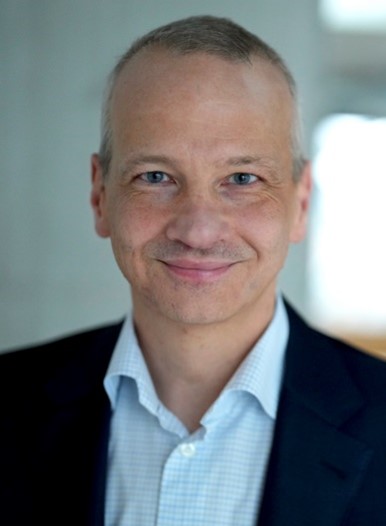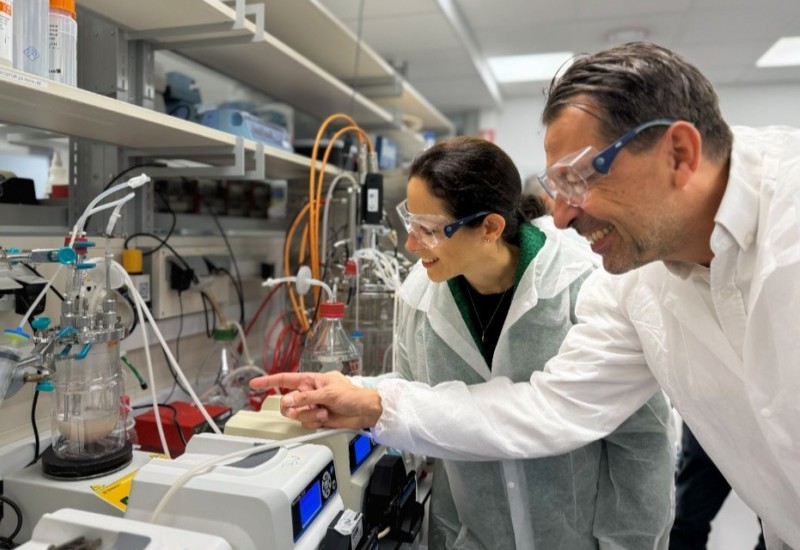BASF sets out new strategy
At its Capital Markets Day in Ludwigshafen, BASF presented a corporate strategy that, it said, “is setting a new direction”. ‘Winning Ways’ is set along four strategic levers of Focus, Accelerate, Transform and Win. “Our ambition is to be the preferred chemical company to enable our customers’ green transformation,” said Dr Markus Kamieth, chairman of the board of executive directors (pictured).
Focus involves redefining its approach to managing the portfolio, which differentiates between core businesses integrated into BASF’s value chains and the production verbund at major sites and standalone businesses that serve specific industries and compete with pure-play peers. In the former, mainly the Chemicals, Materials, Industrial Solutions and Nutrition & Care segments, BASF is among the top three global players in 75% of the businesses.
“We will capitalise on our market-leading positions in our core businesses through organic growth and disciplined, value-accretive acquisitions, while continuing our rigorous approach to pruning non-strategic or low-return businesses,” Kamieth said.
The standalone businesses will gain more strategic and operational flexibility to respond to the specific requirements of the markets they operate in. Thus, the company will continue to invest in them but “will also pursue active portfolio options where this adds value for BASF and its shareholders”.
Within the Coatings division, BASF will prepare a divestment process for the decorative paints business in Brazil. It will also complete the legal and ERP separation of the Agricultural Solutions business by 2027 and is looking towards a potential IPO. In the midterm, the listing of a minority share is an option.
The Environmental Catalyst & Metal Solutions and Battery Materials businesses will be reported as separate divisions in the Surface Technologies segment as of 1 January 2025. The company said that, in the light of recent market developments, it is “de-risking the path forward by focusing on filling existing capacities and exploring opportunities for collaborations along the value chain” for Battery Materials.
With Accelerate, BASF will aim at more speed in value generation and the simplification of its organisation. It will “empower its businesses through more streamlined and differentiated group steering”, making its operating divisions even more accountable for business success. Further initiatives include greater use of artificial intelligence to advance productivity and accelerate innovations.
Under Transform, BASF is taking initiatives to help customers achieve their green transformation targets. This has already begun by sourcing increasing amounts of renewable electricity and volumes of renewable feedstocks. To ramp up the latter, the company will set up a dedicated unit based on its approach for renewable energy.
Transformation-related spending is expected to average €600 million/year from 2025 to 2028. BASF confirmed its own climate protection targets and wish to make Ludwigshafen “a leading, sustainable chemical site for Europe and a strong pillar for BASF’s success”. This has already led to some asset adjustment measures, with the closure of the adipic acid, cyclododecanone and cyclopentanone plants being announced at the end of August. In addition, BASF will adjust its non-operations structures in Ludwigshafen and bring down costs through multiple measures.
With Win, finally, the company will “increase accountability, speed and performance orientation throughout the company”. BASF also plans to distribute at least €12 billion to shareholders from 2025 to 2028. This is underpinned by new financial targets of:
* EBITDA before special items of €10-12 billion in 2028 in mid to up-cycle conditions
* Cumulative free cash flow of over for €12 billion in 2025-2028
* Return on capital employed around 10% in 2028















